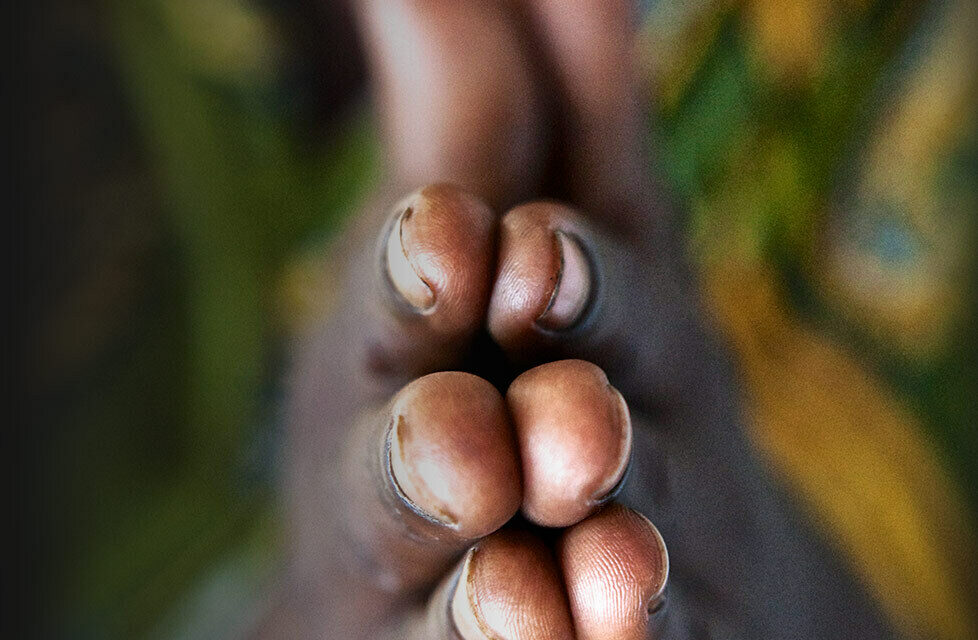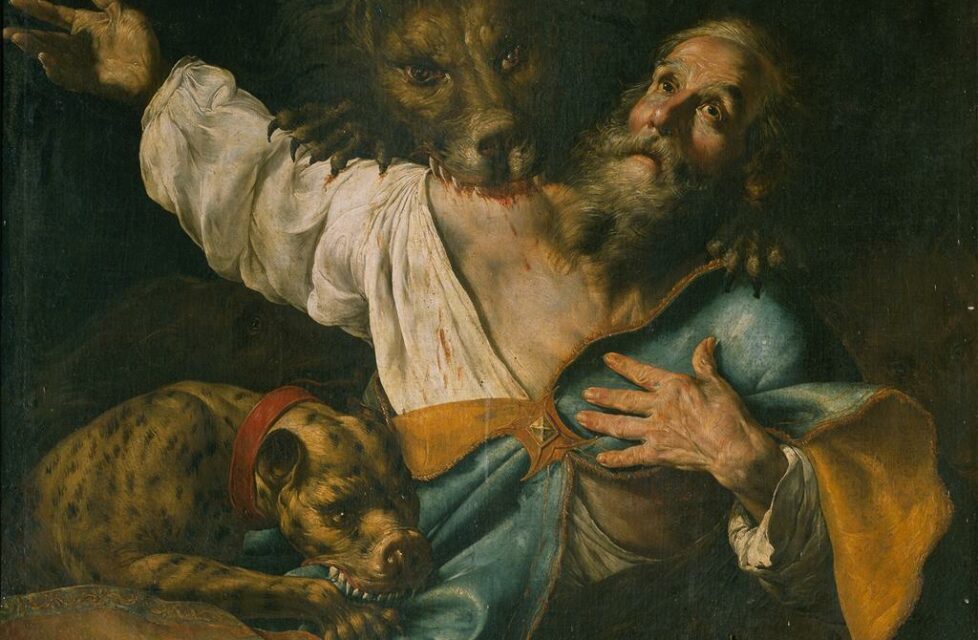The first time Andy Byrd went on a missions trip, he wasn’t really living a sold-out life for Jesus. But something happened on that trip: the seed of gospel service was planted in his life. After high school, he signed up to train and serve for six months through Youth With a Mission. That six-month stint has now lasted 23 years as Andy has dedicated his life to spiritual awakening in a generation. Today he serves on the leadership team of YWAM in Kona, Hawaii, and also heads up The Send, an international event to bring about a new Great Awakening and motivate Christians to get involved in sharing the gospel—to those around them and to the ends of the earth. Listen as Andy shares about his own call to missions, how God has used The Send, and about his time in places where Christians are persecuted, including North Korea. Never miss an episode of VOM Radio! Subscribe to the podcast.
Read MoreA teenage girl and her mother were rejected by their family because of their decision to trust in Christ. Desire is 14 years old, and when her Muslim father discovered she had become a Christian by finding her baptism card, he stopped paying her school fees, forcing her to drop out of school. He also divorced her mother, Christine, because he learned she had become a Christian as well.
Read MoreTokuma lives in an area of Ethiopia dominated by tribal religions. When he became a Christian two years ago, he desired to grow in his faith, but there was only one Bible to share among the 20 members of his small church. Members took turns with the Bible, returning it to the church every Friday so their church planter could prepare for his Sunday teaching. But Tokuma hungered to know more.
Read MoreThe Algerian government sealed three churches in Oran on July 7, the latest closings in a government campaign against Christian churches that began in 2017. In November of that year, Algerian authorities began closing churches via a national ordinance mandating that permission must be obtained to use any building for non-Muslim worship.
Read More“You are of our blood, and unless you return to our traditions, Iwill take back your blood myself!” shouted the uncle of UMaung Than. When Than decided to leave his family’s traditional religion andbecome a follower of Christ, he immediately became a marked man byhis own family in his homeland of Myanmar. He was soon arrested andimprisoned on trumped-up charges. The military dictatorship used theuncle’s hatred of Than’s faith to sentence him to death. In March 2002, Maung Maung and Kam Lian Ceu, two Christianfriends of Than, came to visit and encourage him, not realizing their friendwas in prison. Maung and Kam learned of the seriousness of Than’s case,as well as the intense hatred against his faith in Christ. For two days themen diligently sought permission to visit him in prison but were continuallyrejected. On the third day, military police in that area finally allowedMaung and Ceu to see Than, but they were ordered not to speak to him. After traveling with Than and the police escort to a wooded area,Maung and Ceu were surprised to receive permission to talk with Than.Before they could say anything, Than pleaded with them, “Please go tomy area and share the Gospel. This is
Read MoreIn June 1900, a fierce nationalist reaction in China against Christianmissionaries and churches claimed more than thirty-two thousandlives. The worst massacres occurred in the northern province ofShanxi. The pregnant Lizzie Atwater wrote a memorable letter homebefore she and six others were martyred. Dear ones, I long for a sight of your dear faces, but I fear weshall not meet on earth. I am preparing for the end very quietly and calmly. The Lord is wonderfully near, and He willnot fail me. I was very restless and excited while there seemeda chance of life, but God has taken away that feeling, and nowI just pray for grace to meet the terrible end bravely. The painwill soon be over, and oh the sweetness of the welcome above!My little baby will go with me. I think God will give it to mein heaven and my dear mother will be so glad to see us. I cannot imagine the Savior’s welcome. Oh, that will compensatefor all these days of suspense. Dear ones, live near to God andcling less closely to earth. There is no other way by which wecan receive that peace from God which passeth understanding. I must keep calm and still these
Read MoreThey were avoided by people from India’s higher castes. These dalits,the so-called “untouchables,” were the lowest caste in the Hinduculture. To be a dalit is to be without hope for a future. Someonecared for them, however, and was willing to risk it all to help them. Yesu Dasu loved the untouchables, and put that love into action bybefriending and helping them. When others ran away, he came closer.He gave them back their dignity. As a mirror of Christ’s love, the fifty two-year-old Christian preacher came to bring healing to their souls. The roaring of the motorcycle engine outside disrupted the quietdinner of Dasu and his family. As Dasu rose to look out the window, two men began pounding on the door. “Yesu Dasu,” they shouted. “Open up! There is someone who wants to speak to you, and you must come with us now.” Dasu slowly opened the door and looked at the men. “Who?” he asked. “There is no time to talk. You must come with us now,” they responded.They grabbed his arm and ushered him to the motorcycle. Dasu’s wife andchildren stared out the window as the motorcycle raced away. After putting the children to bed, his wife patiently
Read MoreSqueals of delight from the children could be heard from down thestreet. Father Francisco Montoya was laughing with them, grinning from ear to ear. The local priest was performing illusions for the kids, reveling in the smiles that radiated from their faces. This was Montoya’s favorite time of day. Montoya called the kids closer and had them sit down as he pulledout his clarinet. The children sat mesmerized as the beautiful musicpierced the air and touched their souls. The adults also gathered aroundand allowed the sounds to wash over them. Putting down the clarinet, Montoya began telling the story of JesusChrist. The people of Quibdó, Colombia, needed to hear the Gospelmessage more than the music. God used the music to draw people closerand to open their hearts, and Montoya was now prepared to share thegood news with them. The next day, Montoya rose early to attend services and began histrek from Quibdó (the capital city of Chocó Department) to the villageof Nóvita. He traveled on foot all around the region, carrying necessarybelongings in a typical indigenous basket. The time passed quickly asMontoya walked steadily down the road. Suddenly, a man raced toward him and grabbed his right arm. Montoya pulled
Read MoreBetty Stam held the baby in her arms, singing softly to this infantchild, all too aware that this was their last night together. Herhusband, John, tied to a bedpost, could not sleep either. Onlytwo weeks ago they had arrived at their mission station with three month-old Helen Priscilla, full of hope, eager for ministry. But on thiswinter night, their quiet lullabies were parting sorrows, for tomorrowthey would die. Betty Scott, daughter of Presbyterian missionaries to China, graduated from Moody Bible Institute in 1931. She had already accepted thecall of God to service with the China Inland Mission. The bond she feltwith John Stam, whom she had met at a prayer meeting for China, andtheir mutual decision to serve Christ in the middle of a dangerous civilwar, could not—did not—hold her back. When she was assigned to amission station in the interior, she left for China. She wrote, “When weconsecrate ourselves to God, we think we are making a great sacrifice,and doing lots for Him, when really we are only letting go some littlebitsy trinkets we have been grabbing; and when our hands are empty,He fills them with His treasures.” Stam, meanwhile, finished his training at Moody in 1932. He gavethe
Read MoreThe small number of children in the village of Santana Ramos inColombia enjoyed coming to school and learning from theirteacher, Dora Lilia Saavedra. She prayed with them every dayand told them about Jesus while they learned. She also sometimes traveled for hours to more distant villages, where there were no teachers, tohelp the children there. She was a good, loving teacher. But one day inNovember, the children’s ordinary school day was interrupted when twomen with guns, wearing army fatigues and boots, walked into the one-room schoolhouse and told the children to leave. “There will be no more school today. Go home and return tomorrow,” they said gruffly. The children quickly gathered their belongings and slipped out of the schoolhouse, wondering what was going to happen. Dora Lilia and her husband, Ferley Saavedra, who also taught at theschool, knew what was going to happen, and they were prepared. Thesemen who had come for them were guerrilla soldiers with the Revolutionary Armed Forces of Colombia (FARC), a Marxist movement characterized by threat, force, and violence. For decades they have terrorized Colombians, targeting Christians in particular. “Christians are dangerous,” they say. “Christians cannot lie. If the army asks them about us, they will
Read More


